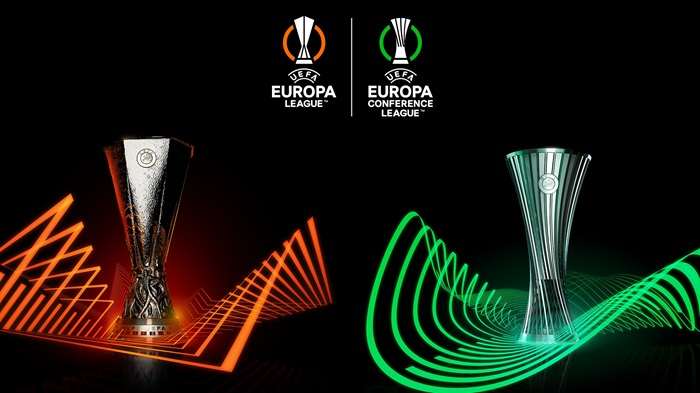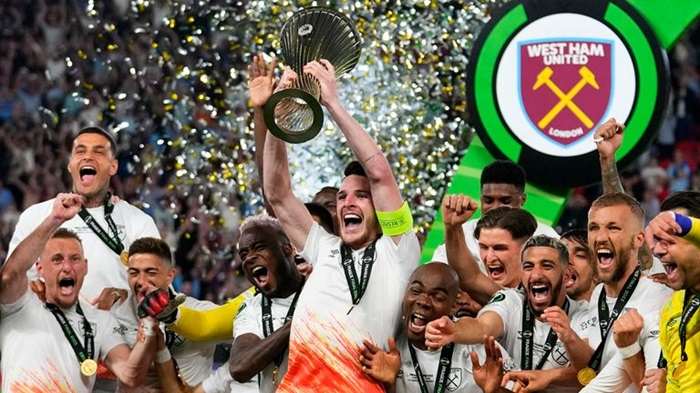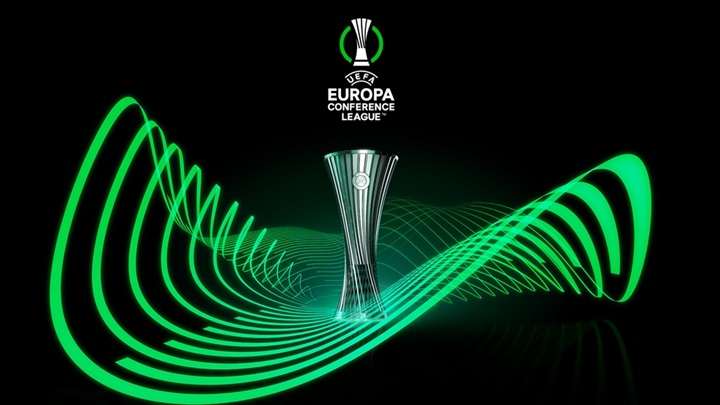The Europa Conference League, UEFA’s newest club competition, has taken the European football world by storm since its introduction in 2021. Aimed at giving more clubs across Europe the chance to experience continental football, this tournament has brought thrilling games, surprising underdog stories, and a new layer of competitive excitement to the sport. Whether you’re a die-hard football fan or a casual viewer, the Europa Conference League (ECL) offers something unique. This article delves deep into the history, structure, and some of the most exciting moments of this budding competition.
What Is the Europa Conference League?

The Inception of the ECL
The Europa Conference League was officially launched in the 2021-2022 season. Created by UEFA, the governing body for football in Europe, it is the third-tier European club competition after the UEFA Champions League (UCL) and the UEFA Europa League (UEL). The primary purpose of this tournament is to offer clubs from smaller footballing nations a chance to compete on the European stage.
The introduction of the ECL addresses an age-old issue: many smaller clubs struggled to qualify for the UCL or UEL due to the dominance of clubs from the bigger leagues like England, Spain, and Germany. By creating a third-tier competition, UEFA ensures more teams have a shot at European football, promoting inclusivity and diversity across the sport.
How the ECL Fits into UEFA’s Competitions
The ECL operates in conjunction with the Champions League and Europa League. The teams that don’t qualify for these prestigious tournaments have a second chance to secure a spot in the ECL through their domestic leagues or via playoff rounds.
The structure of the competition mirrors that of the UEL and UCL: group stages followed by knockout rounds, eventually culminating in a final. The winner of the Europa Conference League earns a direct spot in the following season’s Europa League, further incentivizing teams to take the competition seriously.
The Structure of the Europa Conference League
Qualification Process
One of the standout features of the ECL is its comprehensive qualification process. Clubs from over 50 UEFA member associations are eligible to participate, but only 32 make it to the group stage. Qualification matches take place during the summer, similar to the UEL and UCL, with teams from lower-ranked leagues entering the competition in the earlier rounds.
Teams that fall out of the UCL and UEL qualification stages also have a shot at making it to the ECL. This multi-tiered qualification process ensures a wide mix of clubs from various leagues, bringing with it a level of unpredictability.
Group Stage Format
Once the group stage begins, the competition follows a familiar format, with eight groups of four teams each. Every team plays six matches—three at home and three away—facing each group opponent twice. The top two teams from each group advance to the knockout rounds, with the group winners progressing directly to the Round of 16 and the second-place teams going into a preliminary knockout round.
This phase of the tournament provides fans with numerous thrilling encounters, as clubs from different countries clash for the chance to advance.
Knockout Stages
After the group stage comes the knockout phase, which starts with 16 teams. Teams compete in a two-legged tie (home and away), with the aggregate score determining who advances. One of the unique aspects of European competitions like the ECL is the drama that unfolds over two matches, making each tie unpredictable and loaded with tension.
The knockout rounds continue until the final, which is a one-off match at a neutral venue. The winner takes home the trophy and the coveted Europa League spot for the following season.
Key Moments and Exciting Games in the Europa Conference League
Feyenoord’s Journey in the 2021-2022 Season
In the inaugural season of the ECL, Feyenoord, a historic Dutch club, made an impressive run to the final. They faced a variety of opponents, including clubs from Israel, Denmark, and Czech Republic, showcasing the diversity of the competition. Their attacking play and passionate fan base brought excitement to the tournament, culminating in a dramatic final against AS Roma.
Although Feyenoord ultimately fell short, losing 1-0 to Roma, their journey was emblematic of the opportunity the ECL offers to clubs looking to make a European statement.
The Rise of AS Roma and Jose Mourinho
One of the most intriguing stories of the Europa Conference League’s early history is AS Roma’s triumph under the leadership of legendary manager José Mourinho. Roma’s victory in the first-ever ECL final not only earned them silverware but also cemented Mourinho’s status as the first manager to win all three UEFA club competitions (UCL, UEL, and ECL).
Throughout their campaign, Roma delivered several memorable performances, including a high-scoring group stage match against Norwegian club Bodø/Glimt and a resilient knockout-stage victory against Leicester City. The final against Feyenoord was a cagey affair, but Nicolo Zaniolo’s goal ensured Roma would become the first champions of the competition.
Leicester City’s European Adventure
Another team that took the Europa Conference League by storm was Leicester City. After failing to progress from the Europa League, they dropped down to the ECL and immediately became one of the favorites to win the tournament. Leicester’s campaign was filled with thrilling moments, including a closely contested quarter-final victory over PSV Eindhoven.
Although their journey was halted in the semi-finals by AS Roma, Leicester’s participation brought attention to the competition from Premier League fans, highlighting the ECL’s ability to draw top-quality teams and talent from across Europe.
Underdog Stories in the Europa Conference League
Bodø/Glimt: Norway’s Surprise Package
One of the greatest stories in the Europa Conference League so far has been the rise of Bodø/Glimt, a small club from Norway. Despite limited European experience, they defied expectations by defeating some of Europe’s more established clubs, including a stunning 6-1 victory over AS Roma in the group stage.
Their fearless attacking style and the backing of their passionate supporters made Bodø/Glimt one of the standout teams of the competition. Although they didn’t reach the final, their performances captured the hearts of football fans across Europe.
Teams from Smaller Nations Shining on the Big Stage
One of the ECL’s core goals is to give teams from smaller footballing nations a chance to compete on the European stage, and the tournament has certainly delivered. Clubs from nations like Kosovo, Albania, and Northern Ireland have all had opportunities to play in the group stage, providing invaluable experience and exposure.
For many of these clubs, simply participating in the Europa Conference League is a historic achievement. It’s an opportunity to bring international recognition to their domestic leagues and attract new fans and sponsors. This aspect of the competition has added a new dimension to European football.
The Impact of the Europa Conference League on European Football

Increased Opportunities for Clubs
Before the introduction of the ECL, many mid-tier and smaller clubs found it difficult to break into European competitions. The UCL and UEL were often dominated by clubs from the “Big Five” leagues (England, Spain, Italy, Germany, and France). However, the ECL has broadened the scope of European football, offering a new platform for more clubs to showcase their talent.
The competition has also provided financial benefits to clubs that qualify. While the prize money may not be as significant as the UCL or UEL, the revenue generated from TV deals, sponsorships, and ticket sales during European nights can be transformative for smaller clubs.
Growing the Popularity of Football Across Europe
Football is already the world’s most popular sport, but the Europa Conference League is helping to spread its appeal even further. With clubs from less prominent leagues getting a chance to compete, fans in those countries are given a reason to engage more deeply with European football.
The ECL has also generated more international interest in domestic leagues that were previously overlooked. For example, after Bodø/Glimt’s performances in the ECL, Norwegian football gained more visibility, with scouts and fans taking a greater interest in the Eliteserien, Norway’s top domestic league.
What’s Next for the Europa Conference League?
Potential Expansion and Evolution
As the competition gains more recognition and popularity, there have been discussions about potentially expanding the format of the Europa Conference League in future seasons. UEFA could consider increasing the number of teams in the group stage or adjusting the qualification criteria to allow even more clubs to participate.
Additionally, the success of the ECL could inspire other confederations to introduce similar tournaments. The concept of a third-tier competition that gives more clubs a chance to shine could be replicated in other regions of the world, further promoting the growth of the game.
Continued Storylines and Rivalries
The ECL is still in its infancy, but it has already created memorable moments and fierce rivalries. As the tournament continues to evolve, it’s likely that more clubs will emerge as regular contenders, and new stories of underdog success will be written.
For fans, the Europa Conference League offers the chance to see fresh matchups between teams from different corners of Europe. This variety and unpredictability ensure that the ECL will continue to provide excitement for years to come.
Related Post:
Meta Quest 2 Games: Exploring the Best VR Experiences in 2024
MSN Free Online Games: A Nostalgic and Entertaining Gaming Experience
The Europa Conference League’s Place in European Football
The Europa Conference League has quickly carved out a unique niche in the world of European football. By providing opportunities for clubs from smaller nations and mid-tier teams from larger leagues, the competition has democratized European football, bringing fresh energy and exciting games to fans across the continent.
As the tournament grows in stature, it will undoubtedly produce more unforgettable moments and help to elevate clubs that previously struggled to break into the European elite. Whether you’re watching from a packed stadium or following from home, the Europa Conference League promises to be an essential part of the European football calendar for years to come.


